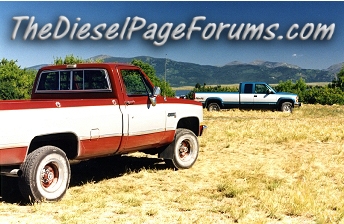
Gee, all I did was drive the same boring route day in and day out, day after day, week after week, month after month... and record every drop of fuel that went into the engine. My mileage calculations from tank to tank were remarkably consistent. Then I started using the additive and repeated the same process. I think I threw out tanks where I was on a long trip. Probably 20K miles without and 20K miles with.
The Constitution needs to be re-read, not re-written!
If you can't handle Dr. Seuss, how will you handle real life?
Current oil burners: MB GLK250 BlueTEC, John Deere X758
New ride: MB GLS450 - most stately
Gone but not forgotten: '87 F350 7.3, '93 C2500 6.5, '95 K2500 6.5, '06 K2500HD 6.6, '90 MB 350SDL, Kubota 7510









 Reply With Quote
Reply With Quote


